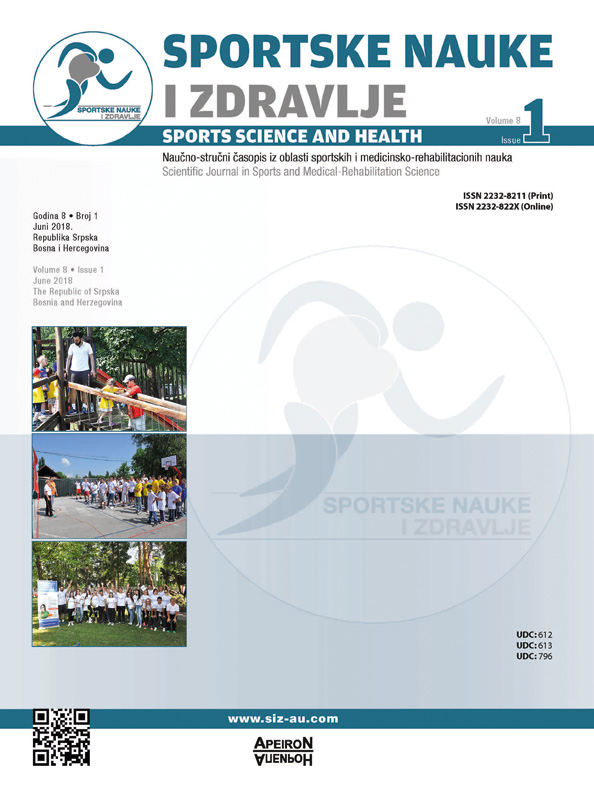Relationship of Body Mass Index and Cardiorespiratory Fitness With Metabolic Syndrome Risk in Adolescents
DOI:
https://doi.org/10.7251/SSH1801005HAbstract
Objectives The prevalence of obesity in childhood and adolescence is a major public health problem and has increased dramatically over the last few decades. More attention is needed because it is closely related to some non-communicable diseases and metabolic syndrome. The aim of this study was to investigate the correlation of body mass index and cardiorespiratory fitness to the prevalence of metabolic syndrome in adolescents. Methods The sample of the study was 44 adolescents. This research is an observational analytic study. The sample of this study measured body mass index, cardiorespiratory fitness, and metabolic syndrome through measurement of abdominal circumference, blood pressure, triglycerides, HDL-cholesterol, and blood fasting glucose. Results The results of the simultaneous test showed that both body mass index and cardiorespiratory fitness had a significant effect on the risk of metabolic syndrome (p = 0.000). The higher BMI tended to have metabolic syndrome 1.746 times higher than not having metabolic syndrome. The propensity of the unfit condition of cardiorespiratory having metabolic syndrome is 4.283 times higher than the one that has the fit condition. This logistic regression model is quite good because it can predict correctly 72.7% of the conditions that occur. Conclusions This study showed that the higher body mass index and cardiorespiratory fitness conditions can be used as predictors of metabolic syndrome in adolescents.Downloads
Published
2018-07-26
Issue
Section
Чланци
